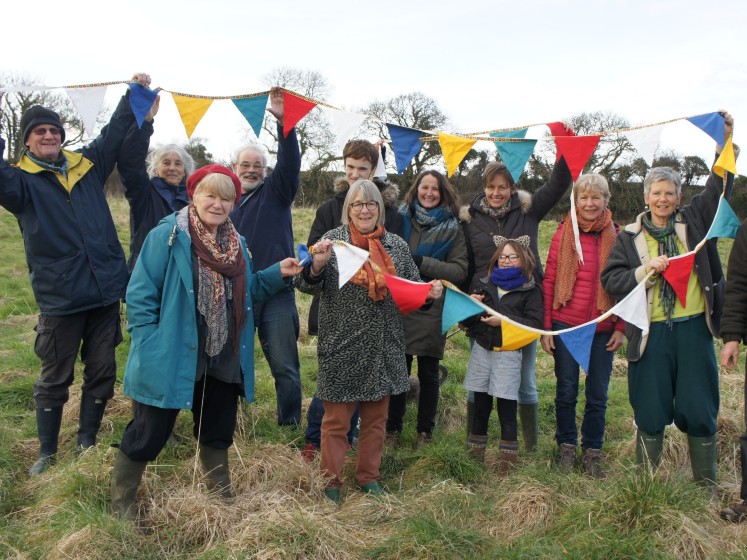 Bridport Cohousing community. Credit: Bridport Cohousing CLT
Bridport Cohousing community. Credit: Bridport Cohousing CLT
People involved in Community Led Housing (CLH) are significantly less likely to feel lonely than people living in more conventional homes and neighbourhoods, according to a new report by researchers from the universities of Bristol, Lancaster, Northumbria and the London School of Economics and Political Science (LSE), released today (Tuesday 30 November).
The report(1) was commissioned by the Department for Levelling Up, Housing and Communities (DLUHC) to explore whether and how innovative housing can help to tackle loneliness. Its origins lie in the development of an England-wide Loneliness Strategy following the publication of the Jo Cox Commission report on Loneliness in late 2017.
The report found that a sense of belonging for people living in CLH, such as co-housing, Community Land Trusts and Co-ops, emerged from the interaction of several factors including the use of shared space and social and communal activities – although these were not necessarily explicitly aimed at community building.
Residents were more likely to trust their neighbours. The most tight-knit places, where members knew and trusted each other the most, performed best as supportive communities.
This trust emerged over time—a ‘slow build-up of a history of kindness’ as one resident put it—creating long-term supportive relationships. It was notable that residents did not always form close friendships, but members had a reciprocal, though not necessarily explicit, commitment to look out for each other.
The researchers found numerous instances of neighbours in CLH communities providing practical and emotional support across age groups or between those sharing similar challenges, such as parents raising young children.
The demanding endeavour of creating a new community with others also played a role in creating long-lasting and meaningful relationships and a sense of belonging that helped prevent loneliness.
Kath Scanlon, Distinguished Policy Fellow at the London School of Economics and Political Science (LSE), who led the research said, said: “Loneliness is a key societal challenge, particularly in the continuing context of the pandemic. Our research shows that the meaningful relationships and sense of belonging that community-led housing fosters can help counter that.
“This strengthens the case for greater support to widen access to these types of schemes and incorporate some aspects of them into more conventional housing developments. CLH could help engender a stronger sense of community where individuals are never far from supportive company.”
The report recommends providing more support for resident control of management and decision-making from the formation stage of CLH schemes and providing well-designed and -maintained spaces for social interaction.
It also recommends investigating how the beneficial features of CLH could be incorporated into existing housing, and conventional new residential schemes.
The researchers undertook an online survey of CLH participants across the UK and in-depth case studies of five (2) CLH communities in England.
The evaluation took account of the possibility that members of CLH projects might be more socially engaged than average by comparing them to members of the general public who were equally involved in social and community activities.